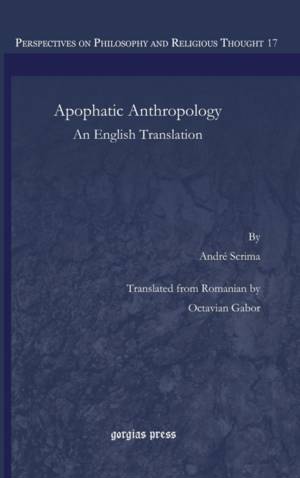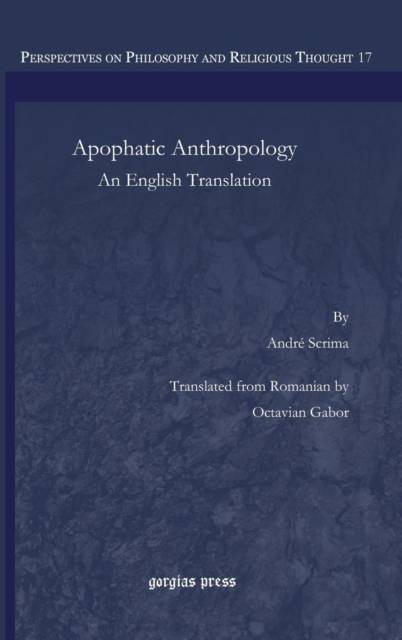
- Afhalen na 1 uur in een winkel met voorraad
- Gratis thuislevering in België vanaf € 30
- Ruim aanbod met 7 miljoen producten
- Afhalen na 1 uur in een winkel met voorraad
- Gratis thuislevering in België vanaf € 30
- Ruim aanbod met 7 miljoen producten
Zoeken
€ 161,45
+ 322 punten
Omschrijving
The project of an Apophatic Anthropology (1952) was one of the most significant philosophical concerns of André Scrima. Pascalian in essence, the approach departs from the Augustinian roots of Western Christian theology and develops a Christian anthropology based on Eastern Orthodoxy. The endeavor of a human being to understand oneself does not lead, as in the case of Pascal, to identification with Jesus Christ's suffering, but further, to an attempt of deification, theosis, in which the main concept is Incarnation. This attempt opens to man the possibility to conceive himself as interior to God. Man becomes therefore the physical and metaphysical bridge between creation and the uncreated, the only creature that bears the image of God. His mysterious inner being thus forms his unity that is transcendent to nature. Scrima's perspective is nourished by the great sources of Eastern spirituality, from Gregory of Nyssa to Maximus the Confessor. Here, philosophy becomes a chapter of Christology. Scrima believed that, by conceiving the person of the Savior, all problems of human nature and human thought have already been asked. In having both divine and human nature, Christ is the paradigm for any human person. The two natures of Christ which, according to the Council of Chalcedon, are unmixed, unchanged, undivided, and inseparable, represent also the encounter between uncreated grace and human nature in the depths of a deified being. An apophatic anthropology is deeply connected with the trials of the modern world. Scrima considers ontological theocentrism to be the only philosophical attitude that is capable to render the dynamic and fertile element of mystery to a human being. This perspective restores a man in the anagogical tension of profound knowledge and brings him back home. Scrima believes also that ignoring this mystery leads to the tragedy of "losing" the image of God in us, which ends in the separation of the paradoxical unity that is essential to any creature.
Specificaties
Betrokkenen
- Auteur(s):
- Vertaler(s):
- Uitgeverij:
Inhoud
- Aantal bladzijden:
- 260
- Taal:
- Engels
Eigenschappen
- Productcode (EAN):
- 9781463205652
- Verschijningsdatum:
- 29/06/2016
- Uitvoering:
- Hardcover
- Formaat:
- Genaaid
- Afmetingen:
- 152 mm x 229 mm
- Gewicht:
- 553 g

Alleen bij Standaard Boekhandel
+ 322 punten op je klantenkaart van Standaard Boekhandel
Beoordelingen
We publiceren alleen reviews die voldoen aan de voorwaarden voor reviews. Bekijk onze voorwaarden voor reviews.







